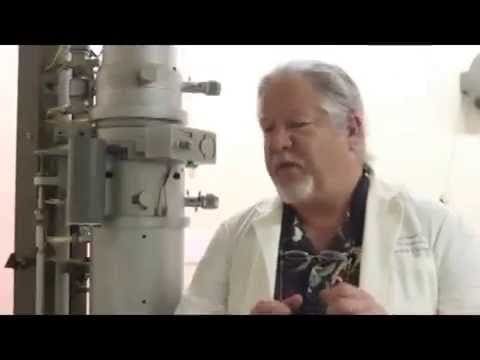
In the recently settled soft dino tissue find case, part of the fired prof’s evidence was the following incident:
The lawsuit contends that [creationism was] why Armitage’s employment at Cal State Northridge was terminated, with one professor allegedly storming into his office and shouting: “We are not going to tolerate your religion in this department!” More.
It strikes me that Prof Stormer thinks that there is a hard and fast distinction to be made between “science” and “religion.” But the distinction falls apart when examined.
Here is a hypothetical example: My religion, we’ll say, teaches that killing animals is wrong and therefore eating meat is wrong.
It would be easy to come up with a wealth of science information on health, diet, and ecology issues around meat-eating. Not too surprisingly, I know much more of this evidence than most people do, and use it to argue my case in friendly conversation in the lunchroom.
There are many issues on which one can come up with competing bodies of reputable evidence and most people tend to know more about the evidence that supports their views (confirmation bias).
So I insist that my arguments are indeed science-based and that the reason my religion forbids meat-eating is that it corresponds to reality. Just because the teaching originally came in the form of a prophetic utterance does not demonstrate that it is untrue.
My employer, however, insists that my case is based on religion and fires me for arguing it peacefully in the lunch room.
Now here is where things get interesting: Even from a naturalist atheist perspective, my religion’s teaching, that meat-eating is wrong, can be accounted for as a way that humans survive and pass on their selfish genes. If the religion is millennia old, showing that its perspective is wrong will at least take some work.
In other words, it is much more difficult to separate “science” from “religion” than some suppose. It is impossible to say whether a person believes that the universe is designed or that meat-eating is a bad idea or that one should rest one day in seven only because of their religion if there is evidence to support the view. That would be “mind-reading.”
The distinction between “science” and “religion” will thus usually be without merit. It is especially troubling in the Armitage case because, while there may not be much evidence to support young Earth creationism, what Armitage had was evidence, unless it can be proved otherwise. One rather hopes he will come up with more soft tissue, mostly for the cell biology value but also to watch his former bosses squirm. They deserve it.
See also: Creationist scholar receives big settlement It sounds like Armitage’s religion had come up with some evidence the U didn’t want to face, let alone rebut. Perhaps he can use the money wisely.
and
Armitage settlement: Nuclear chemist Jay Wiles’s thoughts Whatever one thinks of the evidence base for young Earth creationism, it speaks very poorly of Cal State Northridge that their response to one such piee of evidence was simply to fire the guy who found it. It makes one wonder whether they are suppressing other information – information that they have control of.
Follow UD News at Twitter!